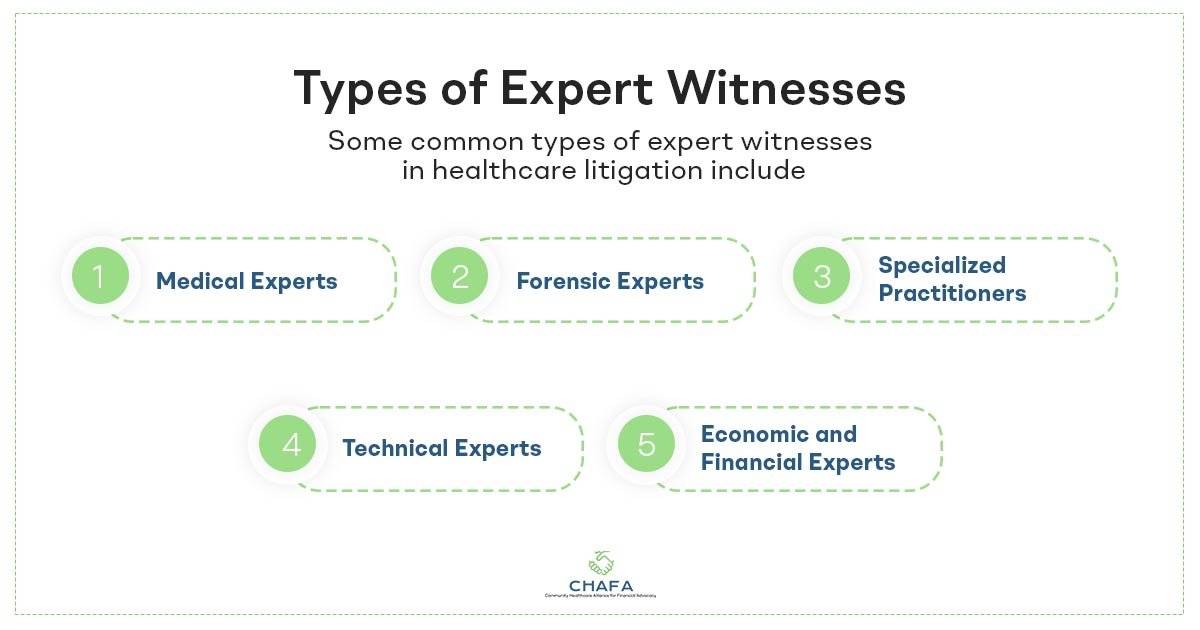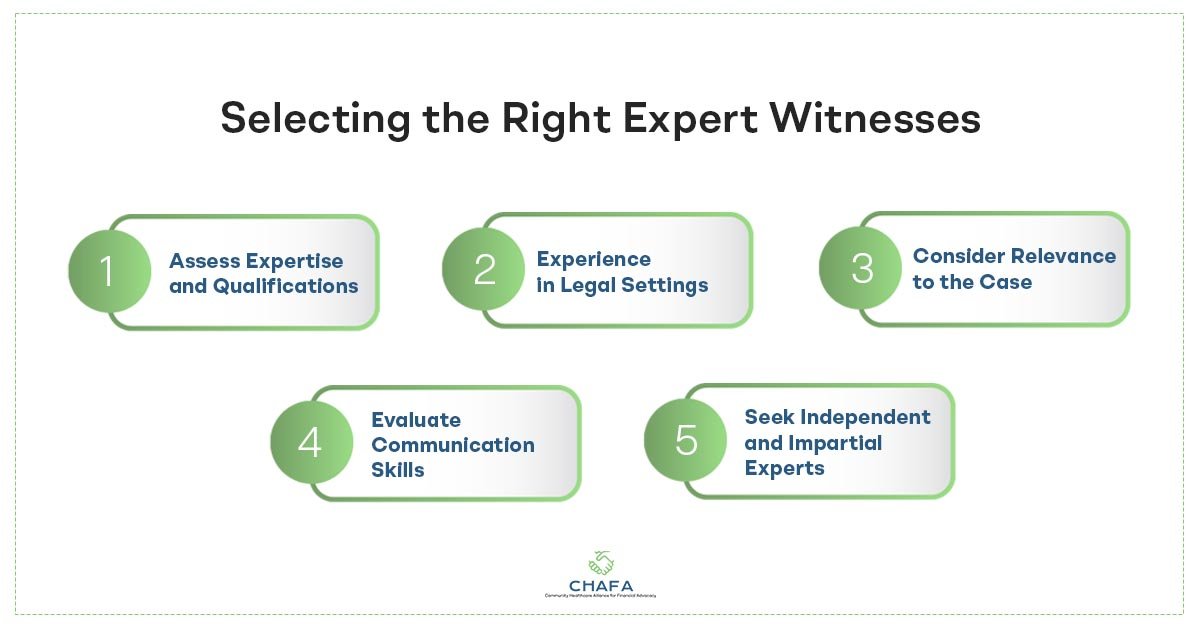
An expert witness’s advice and testimony can make or break a case in the complex world of healthcare litigation. Choosing the best expert witness is a crucial choice that requires a lot of thought and research.
What is an Expert Witness?
An expert witness is a person who is qualified to testify in court because they have particular knowledge, abilities, training, or experience in the medical field. Their job is to help the court grasp complicated topics related to the case at hand by providing unbiased and objective opinions based on their experience.
In courtroom procedures, expert witnesses are essential as they fill in the gaps in juries’ and judges’ knowledge of the nuances of a case.
Types of Expert Witnesses
In the realm of healthcare, various types of expert witnesses may be called upon to provide testimony, depending on the nature of the case.
Some common types of expert witnesses in healthcare litigation include :

1) Medical Experts:
These experts, often physicians or surgeons, provide insights into medical standards of care, treatment protocols, and the interpretation of medical records.
2) Forensic Experts:
Forensic experts specialize in analyzing medical evidence, often in cases involving criminal investigations, malpractice, or injury claims.
3) Specialized Practitioners:
Depending on the specifics of the case, experts from specialized fields such as nursing, pharmacology, pathology, or mental health may be required.
4) Technical Experts:
In cases involving medical devices, pharmaceuticals, or healthcare technology, technical experts offer insights into product design, functionality, and safety standards.
5) Economic and Financial Experts:
Economic and financial specialists offer analysis and testimony on issues like billing procedures, economic damages, or valuation of healthcare businesses in lawsuits involving healthcare facilities and medical insurance claims.
When are Expert Witnesses Used?
Expert witnesses are used in court cases at several phases, such as trial testimony, depositions, and pre-trial investigations. They are used in situations where specific knowledge or experience is needed to support or contradict allegations, make sense of complicated situations, or instruct the court on subjects outside the purview of general knowledge.
Numerous healthcare-related matters, such as those involving medical malpractice, personal injury lawsuits, product liability cases, insurance disputes, and regulatory hearings, may involve the use of expert witnesses.
Their testimony can impact the result of a case by offering the parties’ arguments clarity, credibility, and compelling evidence.
Selecting the Right Expert Witnesses

1) Assess Expertise and Qualifications:
Start by carefully assessing the experience, credentials, and work history of possible expert witnesses. Seek out people who have a great deal of experience and qualifications related to the particular problems at hand. Check their credentials, including their degree, experience serving as an expert witness, publications, board certifications, licensure, and training.
2) Evaluate Experience in Legal Settings:
It is extremely helpful to have prior experience testifying as an expert witness in court. Look for applicants who have demonstrated the ability to navigate intense cross-examination, articulate difficult ideas in court, and remain composed under duress. Expert witnesses with prior experience are more credible and confident in their capacity to endure close examination.
3) Consider Relevance to the Case:
Choose expert witnesses whose backgrounds closely correspond with the main arguments and points of contention in the case. Examine their knowledge of pertinent laws, rules, industry practices, and standards of care that are relevant to the particulars of the case. Giving an effective testimony requires a thorough understanding of the intricacies of healthcare and the legal structure that surrounds it.
4) Evaluate Communication Skills:
For an expert witness to effectively and succinctly present their conclusions to juries and judges, effective communication is a prerequisite. Using written reports, simulated testimony exercises, and interviews, evaluate the communication abilities of possible expert witnesses. Seek out those who can effectively interact with the court, retain professionalism, and explain complicated ideas in simple words.
5) Seek Independent and Impartial Experts:
Select expert witnesses who can provide analysis and testimony with impartiality, objectivity, and independence. Steer clear of candidates who have financial ties to the parties involved or personal prejudices that could undermine their credibility, as these could create conflicts of interest. The credibility of the case is increased when an unbiased expert witness provides testimony that is more trustworthy and honest.
The Role of The Expert
Once selected, the expert witness assumes a crucial role in the litigation process, with responsibilities extending beyond mere testimony.
- Case Review and Analysis: Thoroughly reviewing relevant documents, medical records, depositions, and other evidence pertinent to the case to form an informed opinion.
- Preparation of Expert Reports: Drafting comprehensive reports summarizing the expert’s findings, opinions, and conclusions, adhering to the requirements of the court and applicable rules of procedure.
- Pre-Trial Consultation: Collaborating with attorneys to develop case strategy, and identify key issues, prepare questioning strategies, and anticipate challenges from opposing counsel.
- Trial Testimony: Presenting expert opinions and evidence through direct examination, responding to cross-examination by opposing counsel, and assisting the court in understanding complex technical or medical concepts.
- Educating the Court: Serving as an educator to judges and jurors by providing clear explanations of technical or medical matters, clarifying misconceptions, and facilitating informed decision-making.
In conclusion, selecting the right expert witness is a critical aspect of healthcare-related litigation. In the complex landscape of healthcare litigation, the guidance and testimony of expert witnesses play a pivotal role in shaping the outcome of legal proceedings.
Visit CHAFA to learn more about healthcare advocacy and how we can be of service.

